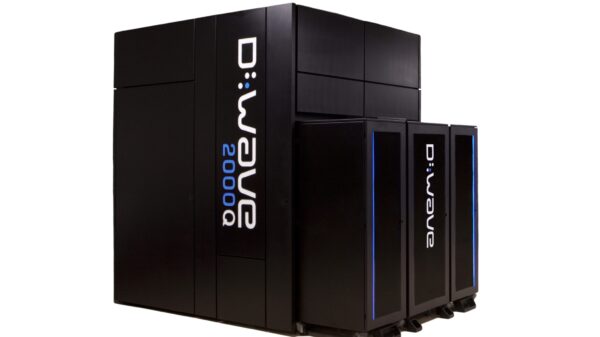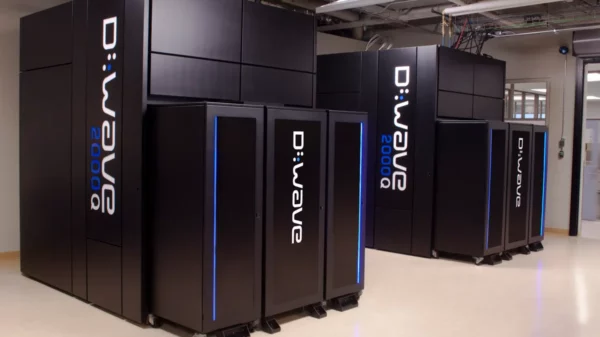The Government of Canada announced an investment of over $17.2 million through the Regional Quantum Initiative in support of Southern Ontario tech startups operating in the quantum technology centre.
The companies include High Q Technologies Inc, and Foqus Technologies Inc, which are two companies the came out of the University of Waterloo. The two companies are receiving $3.7 million and $601,975 respectively. The government announced the investment at High Q’s office in Waterloo on Thursday.
The Government of Canada’s National Quantum Strategy is progressing with the recent round of funding guided by specific criteria. Meanwhile, The University of Waterloo’s Institute for Quantum Computing (IQC) serves as the anchor point of Waterloo’s quantum ecosystem. HighQ receives support from Transformative Quantum Technologies (TQT), led by David Cory, professor of chemistry at Waterloo, an IQC member, and a board member of High Q Technologies.
HighQ uses quantum technology to find solutions for complex problems in protein dynamics, which will unlock to pharmaceutical options.
“The Government of Canada has demonstrated a strong commitment to the health sciences and biotechnology sectors by supporting both research and development as well as commercialization of new ideas that translate into impactful solutions in these critical fields,” Wendy Hinchey, CEO, High Q Technologies Inc., said.
“This recent investment will support further developments in our quantum-enabled EPR systems, which will empower scientists to pioneer breakthroughs in disease treatment and drug development.”
The companies will use the money to commercialize their products for global markets. The funding will create support for up to 150 jobs.
Waterloo-based quantum companies ISARA Corp and ForeQast Technologies Limited also received the investment.
Read more: Ericsson Canada partners with two Canadian universities to open a Quantum research hub
Read more: Canada and U.K. partner for $32M biomanufacturing program and quantum science research
Program carried strict eligibility criteria
Small and medium-sized businesses located in southern Ontario were held to specific criteria to be eligible for funding while commercializing or adopting quantum technologies or quantum-based tech options.
Eligible companies had to be incorporated and registered at the time of application. Additionally, they also needed to have an Intellectual Property (IP) strategy in place, and either own the project’s IP, possess a license to the IP rights from a Canadian licensor, or have acquired the necessary IP rights for the project, ensuring no infringement on any IP rights. Eligible companies also had to secure half of its own funding.
In addition to the mandatory eligibility criteria, companies that had a marketable product that had shown some sales were given preferential consideration.
“We’re pleased to see our partners in the federal government strategically investing in the advancement and success of Waterloo’s quantum startups,” Norbert Lütkenhaus, executive director, Institute for Quantum Computing, said.
“Our quantum ecosystem is a top destination for world-class researchers and entrepreneurs. Advancing the commercialization of quantum technology built here helps Canada remain competitive on the global stage.”
Otherwise, the government program extended preferential treatment to companies with connections and support from the quantum ecosystem. Such support could manifest as investment from an accredited angel or venture capital investor, or participation in a Canadian business accelerator, incubator, government program, or similar initiative.
Read more: Quantinuum advances quantum computing with release of powerful processor
Read more: Government of Canada invests $40 million into quantum computing tech firm
Quantum computing outperforms most powerful supercomputers
The potential for quantum computing lies in task optimization, where it can significantly enhance processes across industries, including logistics, supply chain management, and resource allocation. By providing more efficient solutions, quantum computing holds the promise of driving cost savings, improving resource use, and streamlining operations on a global scale.
Quantum computers outperform even the most powerful supercomputers in tackling large, complex, and cumbersome problems, which often involve numerous variables, permutations, and uncertainties. For example, in 2019, Google and NASA demonstrated quantum supremacy by executing a computation to generate a genuinely random number—a task that would have taken a supercomputer thousands of years but was accomplished by the quantum computer in a matter of seconds.
“Quantum computing will revolutionize cryptography by securing sensitive data, which may cause economic disruption and job displacement,” Carl Pihl, CEO and founder of IT support ticket startup Ticketinghub, said.
Technologies such as blockchain offer an option where people can own their data and use personalized services without any compromise to their privacy. Pihl says that the combination of quantum computing and blockchain could theoretically change the way we handle information and protect privacy.
In addition to their speed advantage, quantum computers are also more energy-efficient and emit fewer carbon emissions compared to traditional computers. While conventional computers require significant electricity to brute force their way through potential solutions, quantum computers leverage the unique properties of qubits to streamline the computation process, offering a more efficient and environmentally friendly approach to problem-solving.
.
Follow Joseph Morton on Twitter
joseph@mugglehead.com














